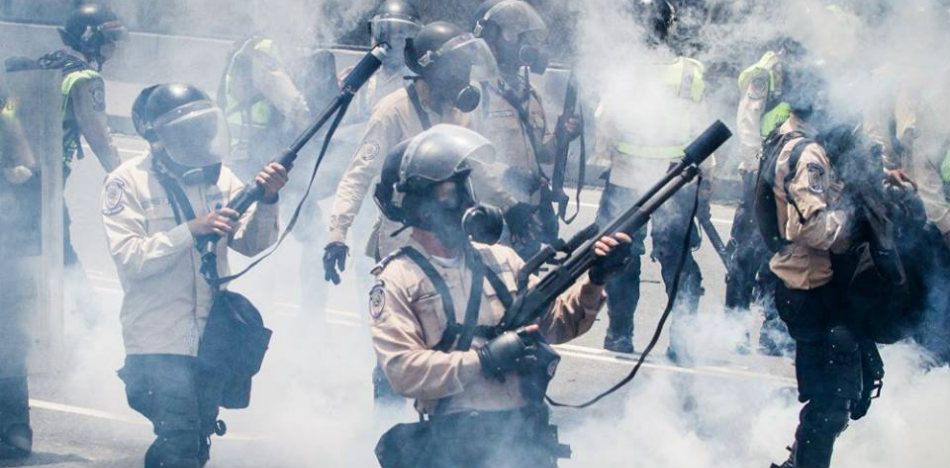
EspañolVenezuela President Nicolás Maduro summoned citizens to write a new constitution at the beginning of May, and though many questions about his proposal remain unclear, the dictator has revealed some new details about the plan for a “National Constituent Assembly.”
According to Maduro, it will consist of 500 members, 250 of whom will be appointed as representatives of various interest groups. Unions, indigenous groups, labor movements and other organizations will reportedly elect their own representatives — a move that looks similar to previous fascist, corporatist and communist regimes.
Cuba
The Cuban dictatorship has the most obvious influence on Venezuela’s current constitutional proposal. In 1976, the island’s government created a constitution that established the country as “a socialist state of workers and peasants and other intellectual workers.” The statement looks very similar to what Maduro proposed: a new “worker, communal, peasant” constitution for Venezuela.
According to the Cuban constitution, the legislative power is held by the National Assembly of People’s Power. Political parties do not actively participate in the electoral process, similar to what Maduro has tried to do in Venezuela by excluding all political parties that aren’t his own.
- Read More: Google Becomes First Foreign Internet Company in Cuba
- Read More: Uribe’s Party Seeks Alliance with Conservatives for 2018 Election
The selection process for candidates of the National Assembly of the People’s Power of Cuba is similar to what Maduro has proposed. Corporations close to the dictatorship are in charge of selecting who can aspire to be part of the legislature. The only legal trade unions in the country, the Cuban Workers’ Confederation, the Federation of Cuban Women, the Union of Young Communists, as well neighborhood “factions” nominate candidates.
It’s had a clear influence on Maduro’s thinking.
Italy’s Mussolini
Benito Mussolini, the father of fascism, created an ideology opposed to liberal democracy. According to fascists, liberal democracy implied a fragmentation of the state. For this reason, fascists banned political parties, claiming instead that the state should form various corporations of workers, businessmen and other groups that had the ability to “empower” and “protect” the nation. What they didn’t mention is that this “integration” of corporations also involved government monitoring to ensure allegience to the regime.
Despite obvious ideological differences, Maduro and his allies have proposed a political project similar to that of fascist corporatism. The Venezuelan dictator, in his eagerness to save the regime inspired by Chavez’s legacy, has decided to abolish what remains of liberal democracy in Venezuela.
“I convene citizen constituents, not constituents of parties or elites,” Maduro said, as if the words were taken right out of Mussolini’s mouth.
Franco and Spain
Mussolini defended the integration of corporations close to the regime as a way of controlling the civilian population as well as to legitimize his dictatorship. Spanish dictator Francisco Franco did something similar. After the victory of Franco and his allies in the Spanish Civil War of 1939, a military dictatorship was established in Spain. An enemy of liberal democracy, it supported the implementation of a corporatist regime across the Iberian peninsula.
Franco’s regime summoned a group of legislators to serve in the Franco courts. Given the authoritarian nature of the Spanish regime, Franco and his allies chose certain corporations that supported Franco. Obviously, the courts could not confront the regime or replace it. They simply legitimized the dictatorship.
Maduro seems to agree with the Francoists when he proposes constituent representation that will “shield the revolution.”
Conclusion
Chavism is nationalist, militaristic and corporatist, as is fascism. Because of this connection, leaders close to fascism like Norberto Ceresole, Eduardo Lopez Pascual, Enrique Antigüedad and Jorge Verstrynge support the Bolivarian project.
The similarities between Chavez’s legacy and Castro’s is equally evident. But a closer look also reveals that Maduro’s dictatorship in Venezuela looks similar to Francosim as well as Mussolini’s Italy.
And that should raise further alarms: The Venezuelan government isn’t trying to improve the crisis; it’s only making things worse.
 Versión Español
Versión Español












